SAVE 10% ON ORDERS OF £150+
Valmont, L’Elixir Des Glaciers, Nescens, Cellcosmet
Search all NESCENS products.
SAVE 10% ON ORDERS OF £150+
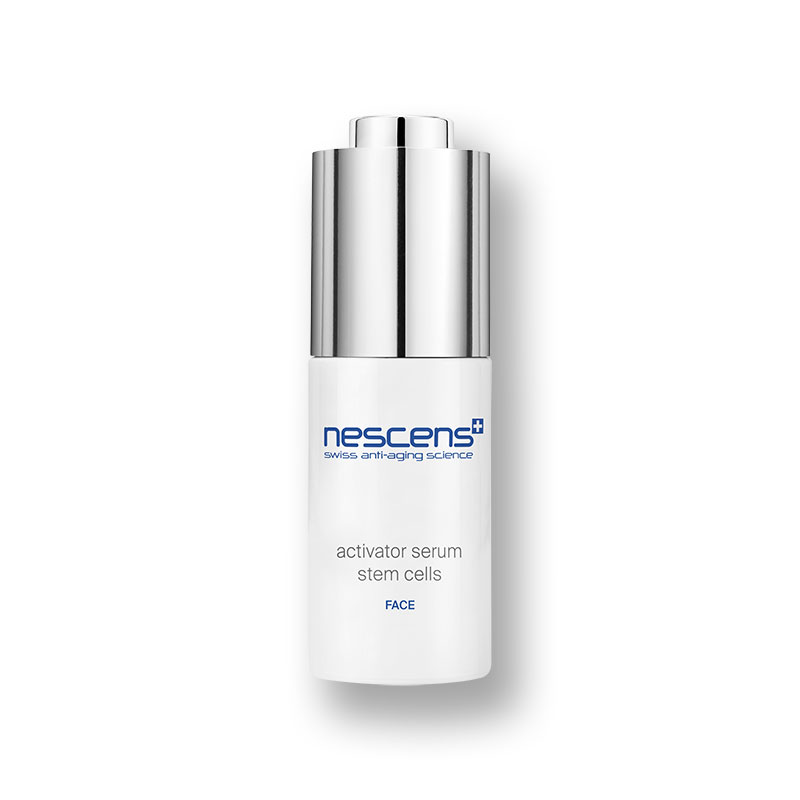
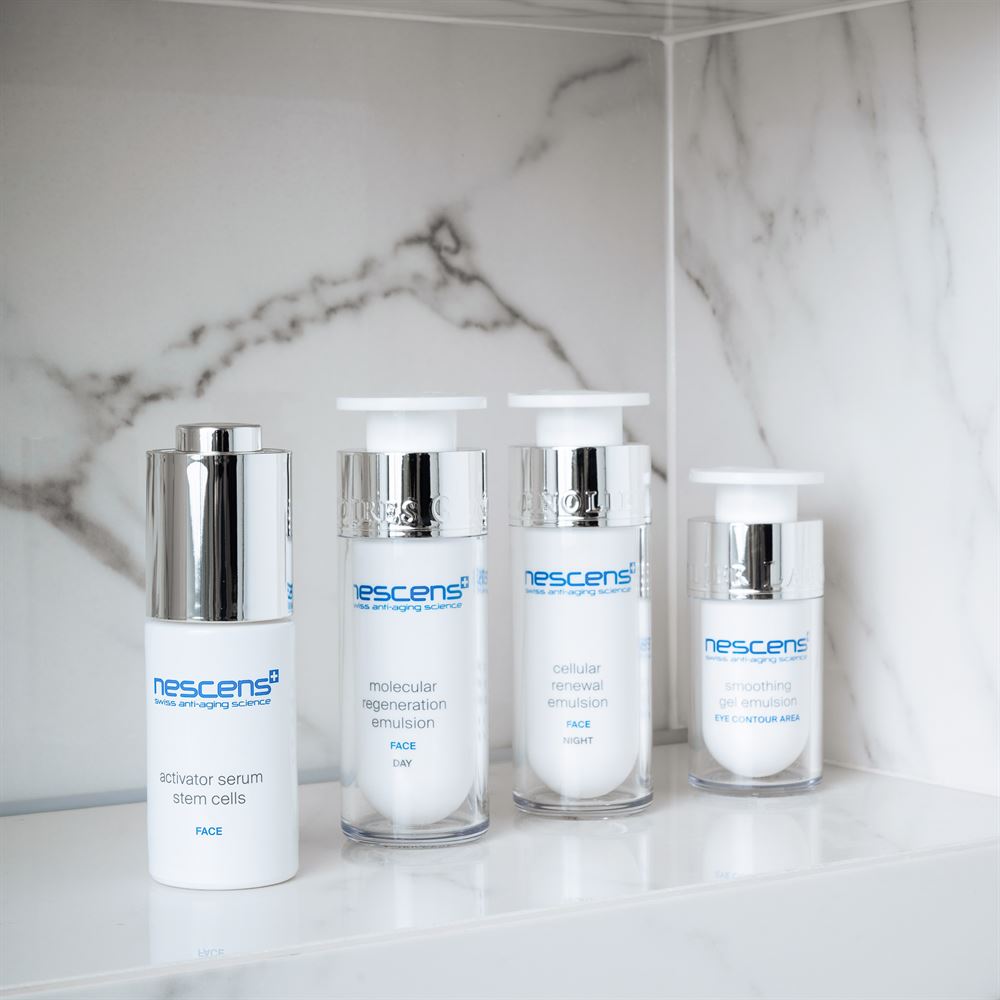
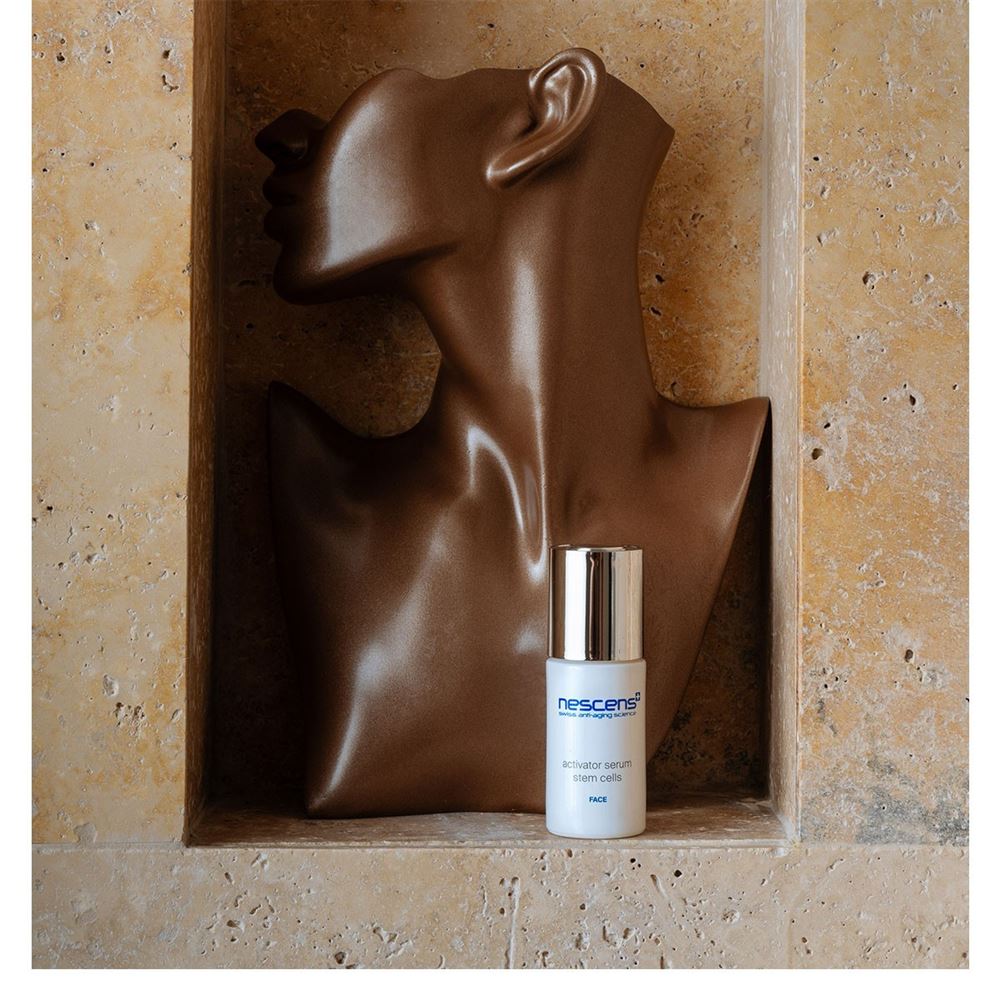
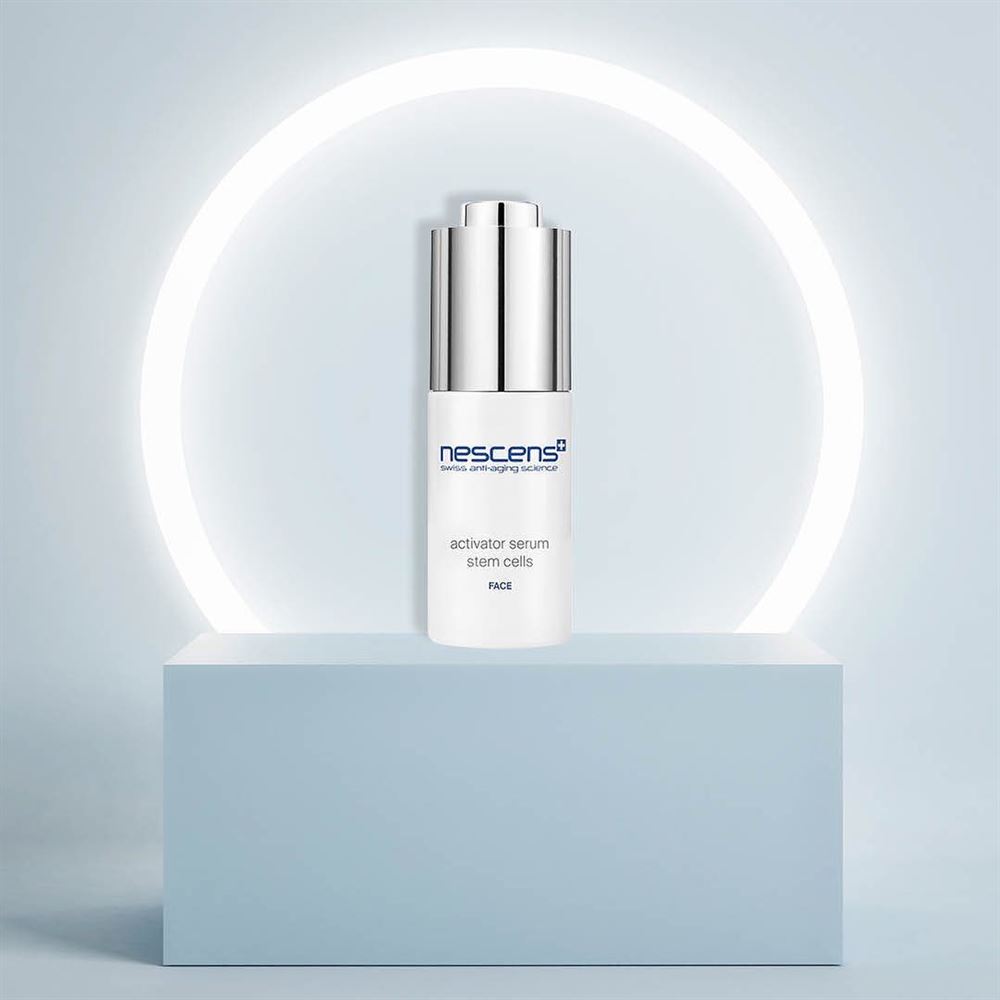






NESCENS
Nescens - Activator Serum, Stem Cells-Face
Anti-aging serum
£495.00 / 30ml
This is the ultimate creation of Nescens biological anti-aging research, which increases the regenerative power of stem cells in the epidermis.
This targeted activation gives life to new cells, optimising epidermal regeneration and bringing a youthful look to the skin. The serum is particularly effective on mature skin which may be lacking in density and firmness.
HOW TO USE.
As part of the Nescens cosmeceutical plan, the Activator Serum, Stem Cells, is designed for use twice daily, before application of Nescens correcting care range, to boost the regenerative potential of the epidermal cells.
Wash the face and neck with Nescens Cleansing Gel. Dry thoroughly. Spray Nescens Metabolic Activator Toner onto hands and apply to perfectly cleaned and dried face and neck. Massage lightly into skin to optimise the penetration of the Toner. Once the Nescens Metabolic Activator Toner has been successfully absorbed, proceed with the application of the Activator Serum, Stem Cells.
PRODUCT BENEFITS
Nescens - Activator Serum, Stem Cells-Face
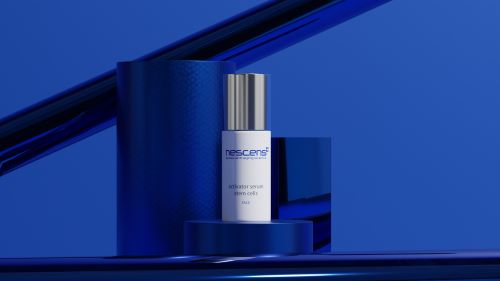
Regenerative power
This serum uses culture extracts to support the production of collagen and elastin, enhancing skin firmness and elasticity
Increases the regenerative power of stem cells in the epidermis
Formulated to combat the signs of aging
Reduces wrinkles
KEY INGREDIENTS & HOW THEY WORK
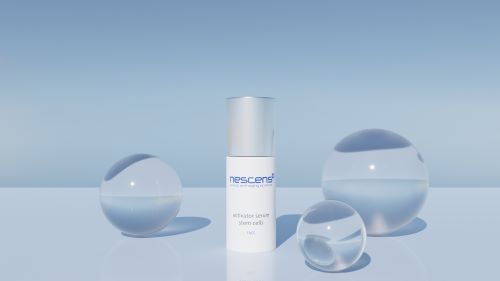
Saponaria Pumila Callus Culture Extract
Helps protect skin cells from sun damage, improving elasticity, firmness, and density in just 4 weeks.
Provitamin B5
Restores, moisturizes, and softens skin.
Sodium Hyaluronate
Keeps skin hydrated and firm by boosting collagen.







